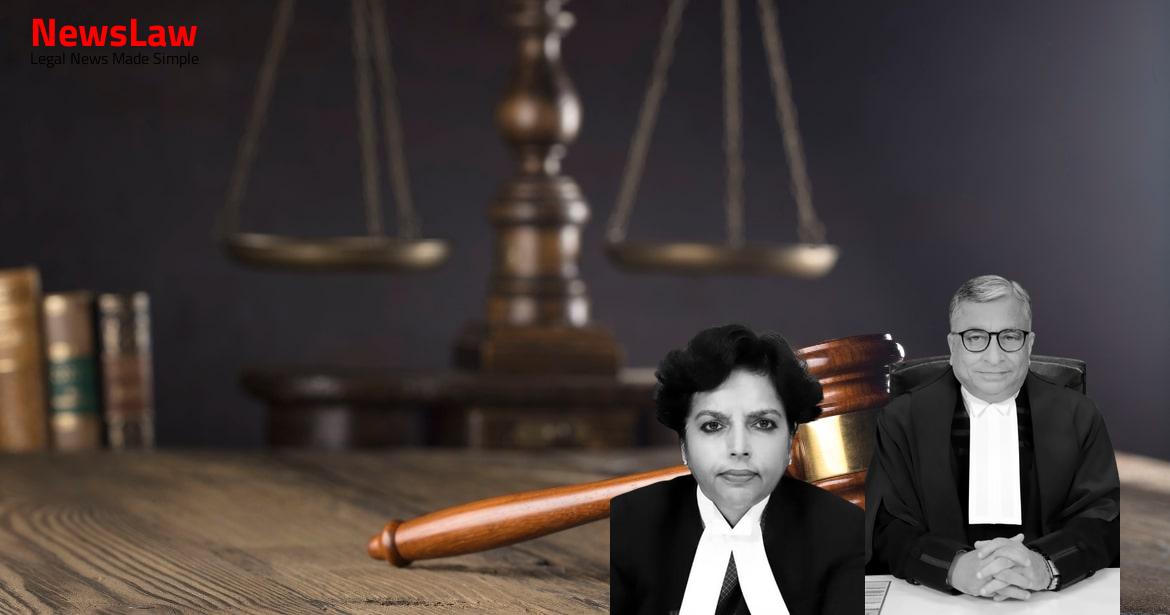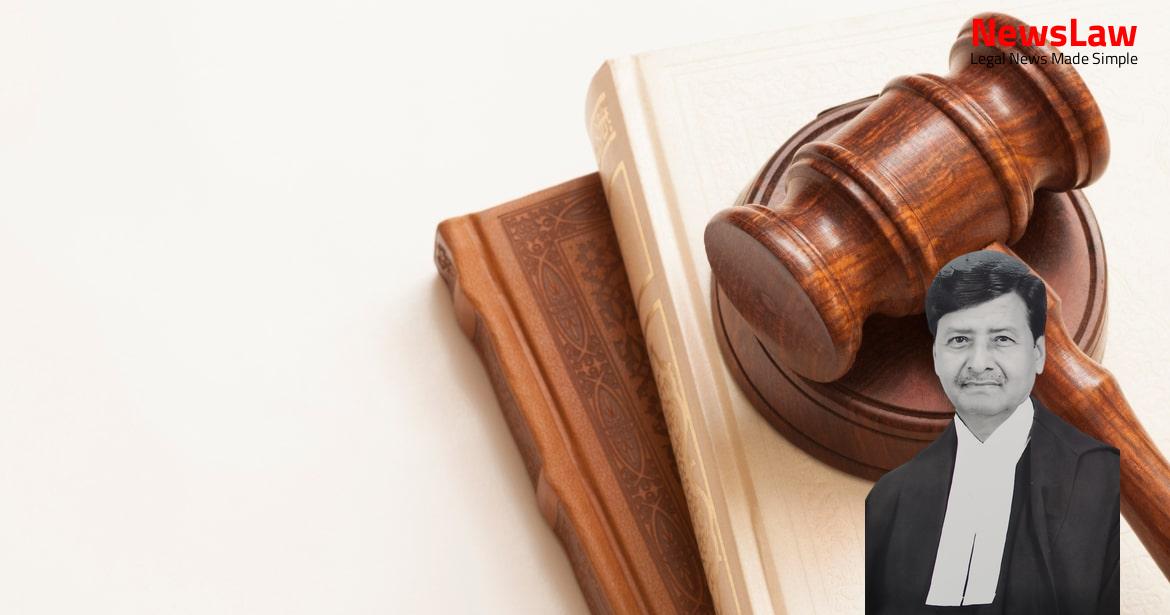In the case of Arun Shankar(appellant) vs. The State of Madhya Pradesh, the appellant was convicted under Sections 302 and 201 of the Indian Penal Code. However, the High Court has now acquitted the appellant of the charges due to lack of conclusive evidence. This landmark decision highlights the importance of thorough legal proceedings and the principles of justice. Stay tuned for more updates on this significant legal case.
Facts
- The Sessions Court convicted the appellant/accused under Sections 302 and 201 of the Indian Penal Code.
- The appellant/accused has been sentenced to undergo life imprisonment.
- The High Court confirmed the decision of the Sessions Court.
- On 29 September 1993, the appellant went to the deceased’s house and asked him to drink liquor
- The appellant and the deceased used to drink liquor together
- The prosecution’s case is based on circumstantial evidence
- Nobody saw the deceased alive after they left PW-2’s house
- The deceased’s body was found on the morning of 30th September 1993
Also Read: State v. Appellants – Reversal of Conviction Case
Arguments
- Last seen together is considered a weak circumstance due to evidence showing the relationship between the appellant and the deceased.
- Recovery of the knife at the appellant’s instance, presumed to be the weapon used in the assault, has not been convincingly proven.
- Important circumstances to consider are: a) Recovery of the knife allegedly used in the assault; b) Last seen together; c) Medical opinion on the deceased’s injuries and cause of death; and d) The habit of consuming liquor together.
- Learned senior counsel for the appellant presented notes of evidence and other court records to support the argument.
- Even the existence of an evident motive has not been established.
- The defense argued that considering the oral evidence of PW-7 and PW-15 together, the theory of death due to a motorcycle accident cannot be ruled out, hence benefit of doubt should go to the appellant.
- It was pointed out that not every circumstance forming a chain of events has been conclusively established.
- The State, however, supported the judgment stating that the dead body was found close to the last known presence of the appellant and the deceased.
- The recovery of the weapon used in the attack was proven, and all necessary circumstances forming part of the chain of events have been established.
- The case relies on circumstantial evidence and the legal principles governing such cases are well-established.
Also Read: Jaiprakash Associates Pvt Ltd v. Delhi Development Authority
Analysis
- There is a legal and grammatical distinction between ‘may be proved’ and ‘must be or should be proved’.
- The accused must be proven guilty, not just possibly guilty, before a court can convict.
- The circumstances must be consistent only with the hypothesis of the guilt of the accused.
- The facts established should not be explainable on any other hypothesis except the accused’s guilt.
- The circumstances should be of a conclusive nature and tendency.
- The principles laid down in the case of Sharad Birdhichand Sarda v. State of Maharashtra must be fulfilled before a case against an accused can be said to be fully established.
- The recovery of the weapon at the instance of the appellant has not been proved.
- Presence of a large number of glass pieces at the place where the body of the deceased was found is unexplained by the prosecution.
- The evidence of pieces of glass found at the place of the incident and the doctor’s opinion during postmortem create doubt about the prosecution’s story.
- One part of the chain of circumstances has not been established.
- The recovery of the knife at the instance of the appellant has not been duly proved.
- The case based on the theory of last seen together is weak in the absence of a motive.
- The prosecution has not presented a motive for the appellant to kill the deceased.
- The circumstances of the deceased being in the company of the appellant on the day of the incident were not unusual.
- The evidence of recovery of the weapon of offence at the instance of the appellant is not fully substantiated.
- The memorandum recording the statement of the appellant has not been properly proved.
- The circumstance of last seen together is a weak point in the case.
- The circumstances do not solely support the guilt of the appellant.
- The circumstances presented are not definitive in nature.
Also Read: Balamurugan Murder Case: Police Interference and Acquittal
Decision
- Appellant’s conviction cannot be sustained.
- Appellant is on bail.
- Appeal is allowed, and impugned judgments are set aside.
- Appellant is acquitted of the alleged offenses.
- Appellant’s bail bonds are cancelled.
Case Title: ARUN SHANKAR Vs. THE STATE OF MADHYA PRADESH (2024 INSC 298)
Case Number: Crl.A. No.-001186-001186 / 2022



